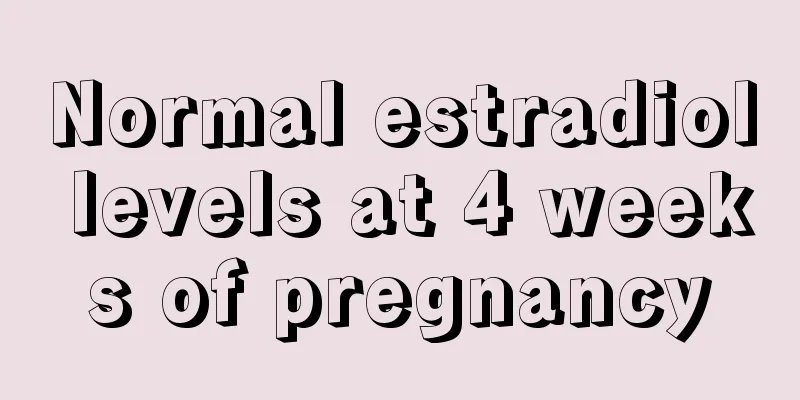hay fever

|
hay fever In March, the flowers are blooming and it is the perfect time for an outing. I believe everyone has already opened their calendars, arranged their time, and prepared to go out to breathe some fresh air. However, many people find it difficult to breathe or have red and swollen eyes when they go out in the morning. Please note that it may not be because you are tired from staying up late or suffocated from work, but because you are allergic to pollen! (Image source: Internet, please delete if infringed) What is pollen allergy? Allergy refers to the abnormal reaction of some people's immune system after certain substances (allergens) enter the human body. The allergen of pollen allergy is pollen, which is essentially the same as other allergies. In spring, everything comes back to life, flowers bloom, and plant pollen floats in the air. When the skin, conjunctiva, nasal mucosa or respiratory tract of people with pollen allergies come into contact with pollen in the air, it will cause urticaria, sneezing, runny nose, red and swollen eyes, and even palpitations, difficulty breathing and other symptoms. How to distinguish between pollen allergy and cold? Pollen allergies often occur in spring, which is also the peak season for influenza. The two have similar respiratory symptoms, but the treatment methods are different. Differentiating between pollen allergies and influenza can help control the abuse of antibiotics. Influenza is often accompanied by symptoms such as fever and headache and is contagious. When you have flu symptoms, you are often not alone, and usually your colleagues or family members around you will also experience similar symptoms. Pollen allergies may be related to genetics, but they are not contagious. Pollen allergies are also accompanied by symptoms such as itchy eyes and rashes, and the symptoms often last for a long time. Should I go to the hospital if I am allergic to pollen? If pollen allergy is not treated promptly, it will gradually worsen year after year, and eventually deteriorate into chronic asthma, nasopharyngitis, conjunctivitis, pneumonia and other respiratory diseases. Elderly people and infants may suffer from laryngeal edema and suffocation risk after inhaling a large amount of pollen. Therefore, it is necessary to go to the hospital for treatment in time after pollen allergy. How to safely get through the "pollen season"? 1. Avoid contact with allergens. People with a history of pollen allergies, asthma, allergic rhinitis, etc. should avoid going to the wild with dense flowers and plants, reduce the number of times they go out, and close doors and windows to reduce the entry of outdoor allergenic pollen into the room. When going out, remember to wear a hat and mask, wear long-sleeved clothing, do not smell flowers and plants casually, wash your hands frequently, and avoid direct contact with pollen. (Image source: Internet, please delete if infringed) 2. Preventive medication People with a history of allergies should prepare before the "pollen season" instead of waiting until the disease occurs to start treatment. Keep anti-allergic drugs (such as loratadine) and anti-inflammatory ointments at home, and often take them one to two weeks in advance for prevention. Patients with a history of asthma should pay more attention to carrying asthma drugs with them. 3. Immunotherapy In recent years, desensitization therapy has gradually entered the public eye. Its principle is to gradually increase the dose of pollen extract that the patient is sensitive to and inject it into the patient's body to produce an immune response and improve immunity to the pollen. However, this operation must be carried out under the guidance and monitoring of professional medical personnel. Do not do it on your own in life to avoid irreversible consequences. 4. Pay attention to your diet According to research results, due to the cross-reactivity between pollen and fruits and vegetables, when a person is allergic to pollen, they are often allergic to some other fruits and vegetables. In addition to avoiding the food that we are allergic to, we should also avoid eating irritating and spicy food. High protein intake can easily cause hyperimmunity in the body, increase antibody production, and aggravate allergic reactions. Therefore, people who are allergic to pollen should reduce the intake of high-protein foods and seafood during the "pollen season". All in all, pollen allergy is preventable and controllable, but don’t take it lightly. I hope everyone can safely get through the “pollen season” and enjoy the beautiful spring. Author: Jiang Weikang, Emergency Department, Shanghai Sixth People's Hospital |
<<: What is the high-protein diet that doctors talk about? How to eat it?
>>: Intestinal flora imbalance is not a trivial matter
Recommend
Foods to treat uterine cold
Women may experience abdominal pain during menstr...
Best time to sweat during a full moon
The best time to sweat during the full moon is 30...
What should women do if they suffer from menstrual diseases?
Women face many disease risks in life because of ...
Why do my legs hurt during my period?
I believe that most female friends are very famil...
Early symptoms of Parkinson's disease in women
Studies have shown that women are older than men ...
I had sex 5 days after I took out the ring.
The contraceptive ring is something placed in the...
Cervical pain? It is important to do five checks
The health of the cervix is related to the heal...
Can oxytocin stop bleeding after medical abortion?
The purpose of medical abortion is to expel the g...
How can middle-aged women nourish their kidneys effectively?
In daily life, don’t think that kidney deficiency...
Hot feet at night
If girls experience hot and dry soles of their fe...
What does chest nodule category 3 mean?
Grade 3 breast nodules are usually detected throu...
Is baking soda effective for vaginal yeast infection?
Many people who have candidal vaginitis will choo...
What causes ovarian cysts and uterine fibroids?
Ovarian cysts are cystic tumors caused by ovarian...
The benefits of a woman's vagina
The body structure of women is very different fro...
How to apply primer before using natural face cream? Which brands of natural face cream are out of stock?
Not only will the skin be in direct contact with ...









